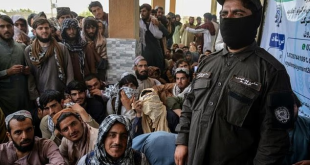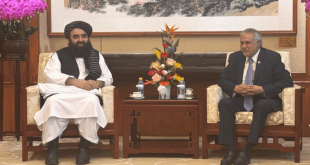KABUL – The Trump administration’s decision to terminate Temporary Protected Status (TPS) for approximately 10,000 Afghans has ignited a firestorm of criticism from veterans, human rights advocates, and bipartisan lawmakers. The policy, set to take effect in July, could result in mass deportations to Taliban-controlled Afghanistan, where returnees face severe risks.
Homeland Security Secretary Kristi Noem announced the revocation, citing “significant improvements” in Afghanistan’s conditions. However, critics argue that the situation remains perilous, especially for those who assisted U.S. forces during the 20-year conflict. Veterans like Matt Zeller have expressed strong opposition, warning of potential physical resistance to deportations.
Advocacy groups highlight that many affected Afghans, including interpreters and support staff, are still awaiting permanent residency due to bureaucratic delays. The termination of TPS leaves them vulnerable to deportation despite their service to the U.S.
Legal challenges are underway, with organizations like CASA, Inc. alleging procedural violations in the policy’s implementation. Bipartisan condemnation is growing, urging the administration to reconsider its stance and uphold commitments to Afghan allies.
The decision also affects other nationalities, including Venezuelans and Cameroonians, as part of a broader rollback of humanitarian protections.
As the July deadline approaches, the fate of thousands hangs in the balance, with advocates calling for immediate legislative action to provide a path to permanent residency and prevent what they view as a betrayal of U.S. promises.
 Afghanistan Times
Afghanistan Times




